Text
Grandmas were so right about puzzles and knitting and crocheting and solitaire and reading slow and slippers and baking and watching deer in the backyard send post
222K notes
·
View notes
Text


Brioche went to the vet today for a check up. The vet assistant came in after and asked if we were waiting for him to be returned, but he had just crawled into the back of my coat like a hermit crab.
1K notes
·
View notes
Text
On Injuries
I got an IT band injury while training a little over two weeks ago.
It may have seemed random at the time, but my body had been firing warning signals for well over a month: fatigue, stress, poor training performance on deadlifts – everything I had been ignoring cascaded into a painful pop while finishing up my last warm up. All things considered, it was pretty remarkable that it took 10 months of programmed powerlifting training for me to finally injure my right knee, the same joint that had gone through two reconstructive surgeries between 2017 and 2019. These were surgeries that resulted from me ignoring warning signs during competitive soccer for years, finally coalescing into a destroyed MCL, meniscus and ACL (aka the terrible triad) and effectively capping any possible athletic progression in soccer or rock climbing, sports that I still love. My athletic background, physical therapy, and supportive husband eventually led me to start powerlifting as a relatively older athlete, so getting injured was always inevitable. Despite this first semi-serious injury, I can still train and compete in less than a month, and I’m physically and financially able to access training facilities, powerlifting equipment, and health care centers as needed.
Yet, as oftentimes with any injury, logic and reality don’t always prevent depression from sinking in.
Depression only lasted briefly because I readily admitted it as an issue 2 days after the initial injury. I have a medical history of depression, and years of therapy have helped me develop a personal protocol for when it hits – the first step being acknowledging that it’s happening to begin with. To deny depression would be turning away from the underlying issue driving it, just like denying an open wound needs cleaning and bandaging could lead to an infection or sepsis.
Once I admitted this reality to myself and others, it allowed me the opportunity to reflect more honestly about the situation and without judgement: Why was I depressed? Why had I ignored my body firing warning signals for a month? Why did I feel so ashamed, angry, frustrated? Why was I training as hard as I was if the end result was less than what I had hoped for?
The answer hit me after completing my first post-injury secondary top set and seeing a fellow athlete and friend cheer me on.
I had gotten hurt because I’d become obsessed with qualifying for nationals at my upcoming meet, and I had forgotten why I started powerlifting to begin with. I’d been so preoccupied chasing numbers instead of focusing on what my body needed until it gave out in protest, and I’d inadvertently wrapped my own self worth in lifting numbers high enough to put me in the top 5% of powerlifters less than a year of actually doing the sport. I was ashamed at the numbers I was lifting, frustrated at the new jolts of pain, and angry that I was suddenly scared and couldn’t push myself hard anymore. Most notably, powerlifting training had quietly shifted from the joy of progress to a myopic end goal of being ‘the best’, no matter what toll it took on my body or psyche.
It took seeing a friend happily cheering me on to realize how dumb I’d been for a month, and how lucky I was to actually get injured at this moment.
Getting injured forced me to slow down and reevaluate not only my own reasons for powerlifting, but to see if there were any adjustments needed to set up and tech for squat, bench or deadlift, and then to implement and practice those changes. (Spoiler: they all needed adjustments.) Injury also provided an opportunity to self-reflect and revisit why I chose powerlifting 9 months ago, and why I continue choosing the sport instead of walking away. I have a life outside of the sport, so why keep going?
It’s simple really: I powerlifting because it brings me immense joy, and it’s an incredible privilege to be able to do so.
Powerlifting is a relatively niche sport that can be out of reach for many. Whether it’s physical capabilities (eg can you do a body weight squat without pain or impingement?), availability of equipment and/or training facilities, or even financial means to afford equipment and coaches, powerlifting can have a high barrier of entry for most people. Even for current powerlifting athletes, overtraining, programing issues or pure bad luck can result in injuries that may not heal as fast due to lack of healthcare resources or a lack of proficient clinicians who know how to diagnose and treat such injuries.
I cannot emphasize enough how incredibly privileged and lucky I am to be physically capable of performing squats, benches and deadlifts properly; to have access and be able to afford training facilities, coaches, and lifting equipment; to have access to an amazing wealth of information and feedback on training, tech, and performance through my coaches, husband, friends, and the internet; to know enough about medicine and the healthcare field where I can navigate and access services if needed; to be married to the most loving, supportive, and knowledgeable man in this world who also happens to be an excellent physical therapist; and to be able to train around people physically, mentally, emotionally, and psychologically stronger than me in the powerlifting community, people that I have the privilege of calling friends. Powerlifting is a choice, and I choose to do it because I’m lucky enough to be able to enjoy the process and find joy in growing with other athletes I respect and admire. Everything else – qualifying totals, world records, numbers – is just extra. The fact that I’m knocking on the door of a qualifying total for nationals less than a year into powerlifting (eg I only learned how to low bar squat in July of last year, and I only learned how to bench in April 2023) with a compromised right knee and left ankle is, for all sakes and purposes, kind of ridiculous.
Injuries are never easy, and they certainly shouldn’t be ignored. I got lucky with my most recent one, and I certainly won’t ignore the lessons this episode provided. Resetting to my core values lifted a huge weight off of my chest, and I’m excited to compete instead of dreading the possibility of not getting a qualifying total. I’m looking forward to how much more I grow instead of focusing on how my numbers compare with others.
Most importantly: this most recent injury showed me the importance of being around people who understand and support you, especially when you’re not feeling the greatest. Getting messages and being asked in person from friends and family about how I was doing did wonders for my mental health, and I still get rather emotional thinking about how caring everyone has been. While powerlifting is technically an individual sport, I’d argue it’s truly a collective sport where you’re only as good as the people and environment around you. In my case, I’m truly surrounded by some of the best out there including my husband, friends and family.
This injury has allowed me to rehab my relationship with powerlifting, and I’m grateful I still get to keep growing with everyone – heavy circles and all.
(See you all out there on the platform in a few weeks!)
0 notes
Text

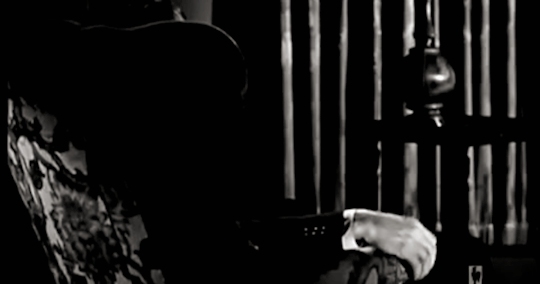
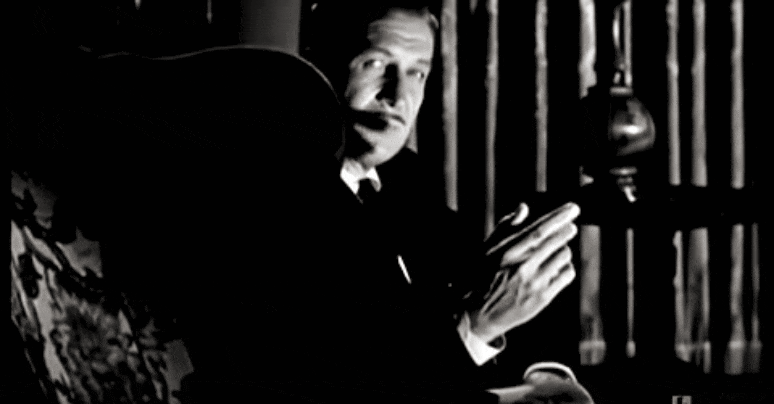
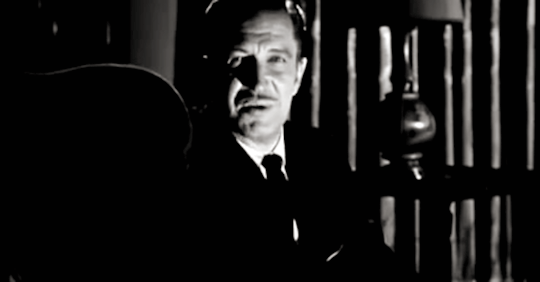
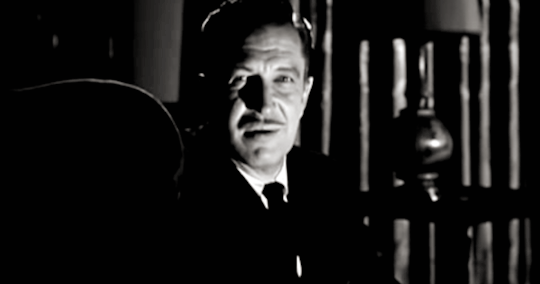

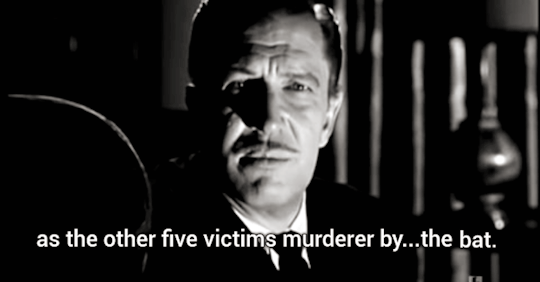
Bringing this back.
Vincent Price's introduction to The Bat (1959)
533 notes
·
View notes
Text

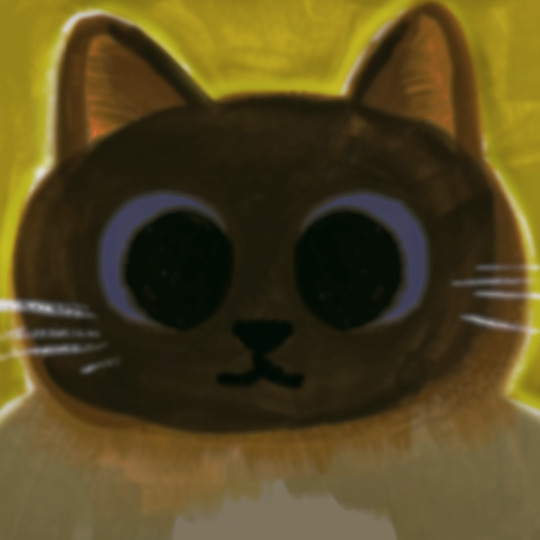
I've always heard you shouldn't make eye contact with animals, and that cats will like the person that ignores them, but that does not apply to Brioche.
44K notes
·
View notes
Text

Unheimliche Geschichten / Eerie Tales (1919)
[letterboxd | imdb]
Director: Richard Oswald
Cinematographer: Karl Hoffmann
Performer: Conrad Veidt
22 notes
·
View notes
Text
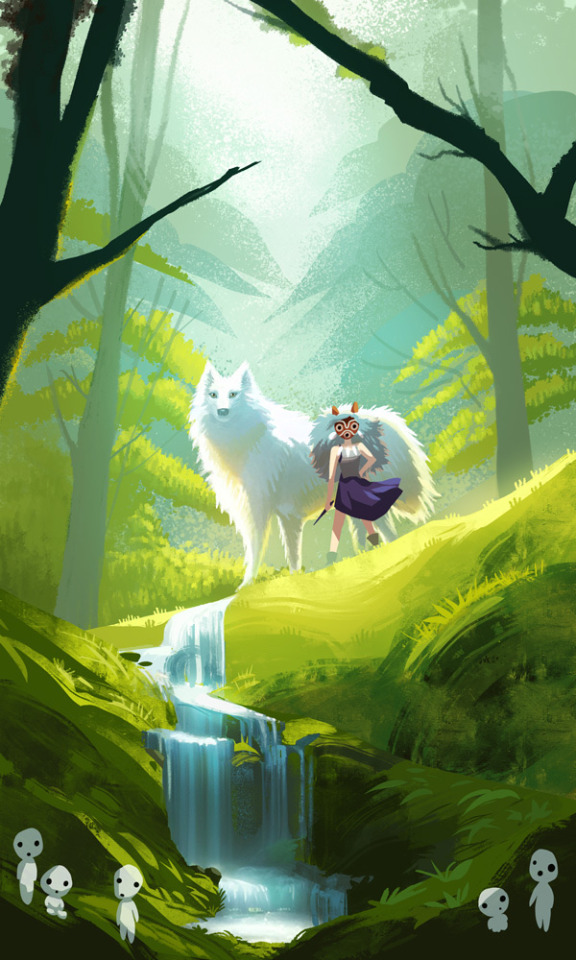
A summery tribute to Princess Mononoke!
Print Store / Instagram / Portfolio Website
4K notes
·
View notes
Text
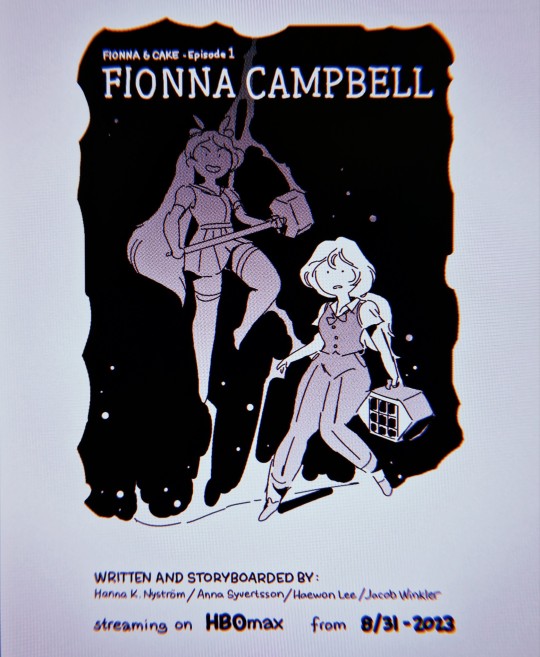
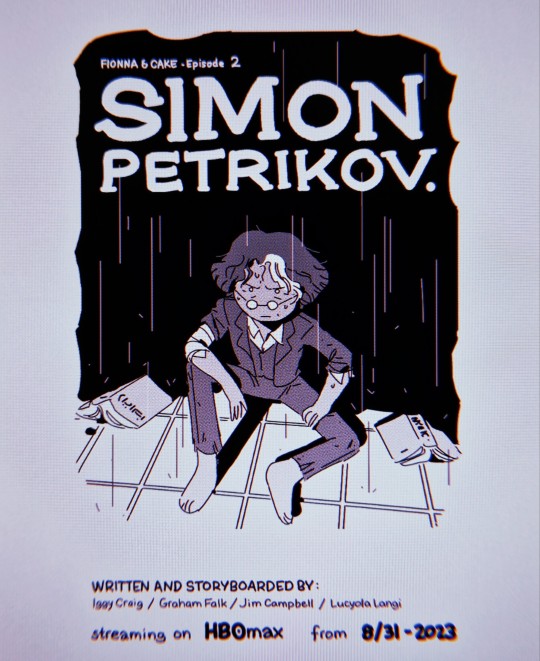
Adventure Time - Fionna and Cake ep 1-2 tomorrow!!
26K notes
·
View notes
Text
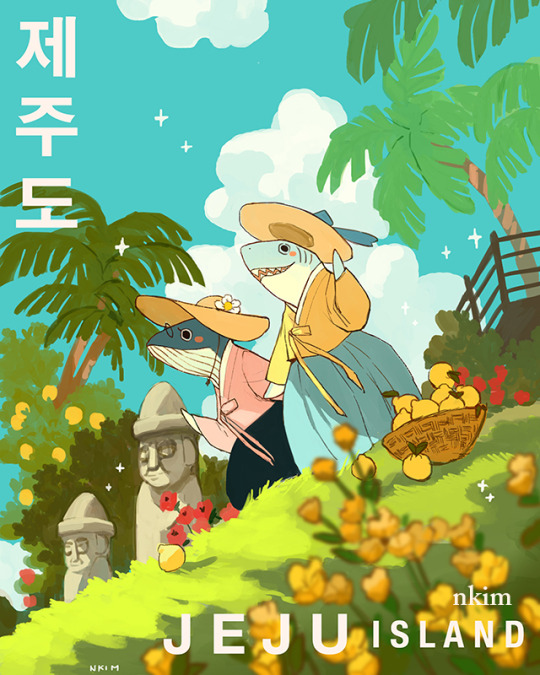
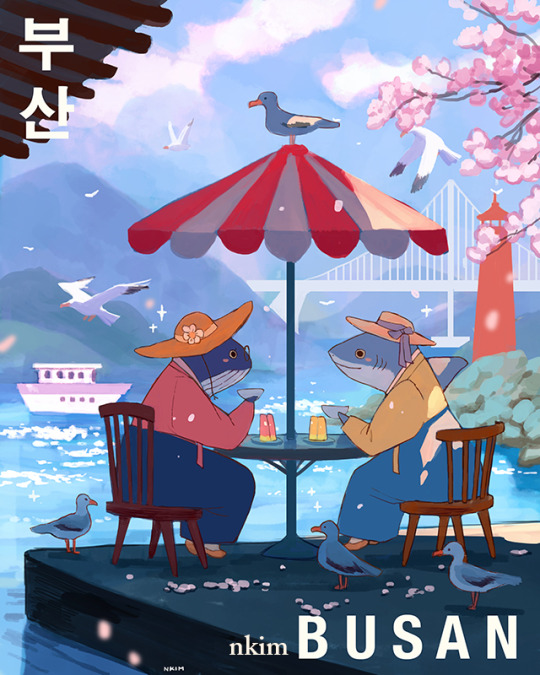
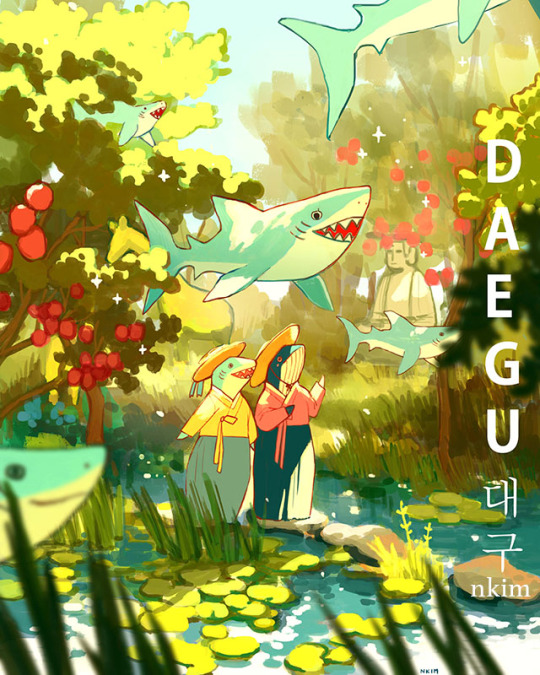
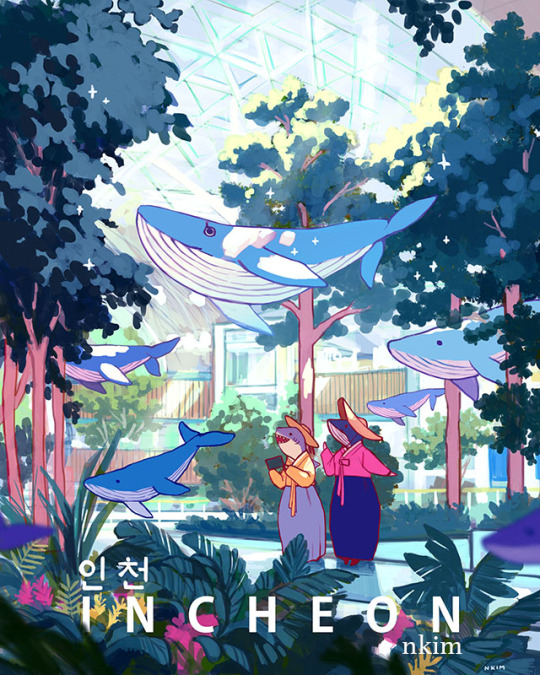
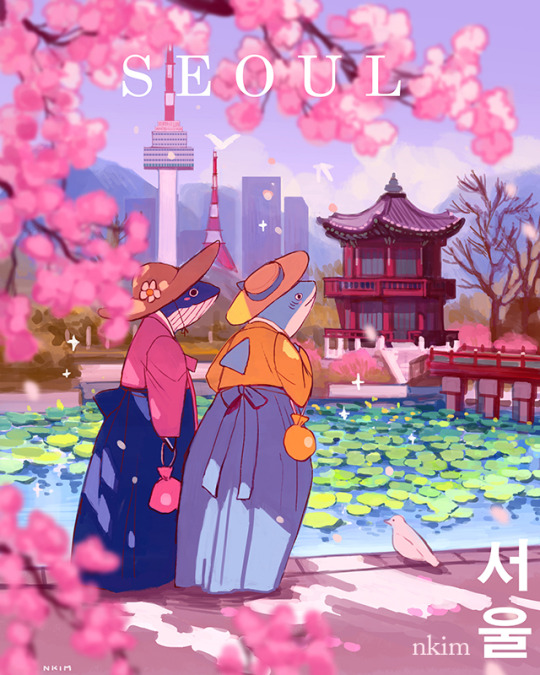
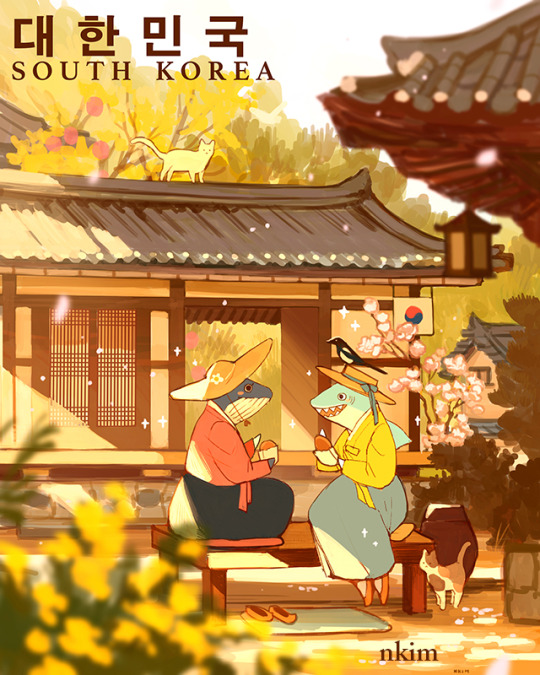
Travel Posters of South Korea featuring Magical Whale and Shark Lady! All posters are available in my shop! Link below!
SHOP
11K notes
·
View notes
Photo


A Joshua Tree weekend getaway, with a painting as added bonus!
1K notes
·
View notes
Photo
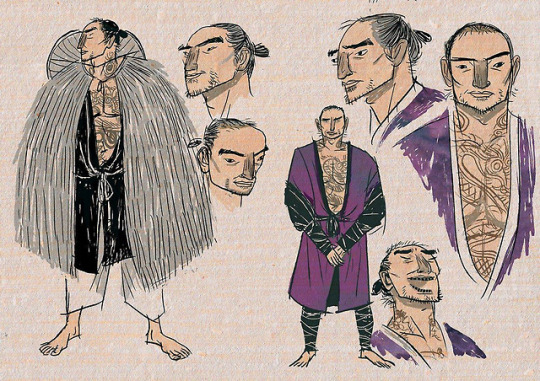
During Lí and Trần dynasties, tattoos were extremely popular. Tattooing was already a custom to the Vietnamese before Chinese occupation, with vicious animal patterns to scare away sea monsters when working on the water. In fact, the practice was so widespread that the name of the pre-Sinicized kingdom of Vietnam was Văn Lang, or Land of the Tattooed People.
After Vietnam was occupied, this practice did not go away. By Lí dynasty, it was still present in the Vietnamese communities that worked in the sea. By the Trần dynasty, to increase the nationalism of Vietnamese, the Trần court ordered tattoos to become part of court laws. Every mandarin was required to have tattoos, or else they would not be allowed to be inside the palace. Emperors were required to have tattoos, and so did women of the harem. Servants and slaves were also tatted, and it was so widespread that when Marco Polo came to Vietnam, he described that to the Vietnamese, the more tattoos one had, the more prestigious and high class one would look.
The tattooing laws during this period was strict. One could only have tattoos at the thighs, chests, stomachs, and backs. Servants and slaves would have their occupations tatted on their foreheads to indicate their status. Only the emperors could have dragon tattoos, but not everyone adhered to that law. Tattoo patterns were varied, and mostly of animals due to the original purpose of this custom. Birds, reptiles, beasts like lions, dragons, phoenixes, and many others were used. Tattoos of words were also common, such as when soldiers tattooed 殺韃 on their foreheads when fighting against the Mongols.
This practice no longer became part of the court after Emperor Trần Anh Tông was so scared of needles that he refused to tattoo, thereby abolishing the mandatory tattoos. Although it was no longer required, the practice was still widespread, and was only completely gone from Vietnamese customs after Ming occupation. To Chinese, tattoos were only for prisoners and it was disrespectful to the body your parents gave, a belief stemming from Confucianism. This idea became widespread after Ming invasion, and stayed with Vietnamese ideals until the end of the monarchy.
Source: Ngàn Năm Áo Mũ - Phong Dương Comics
119 notes
·
View notes
Text
If you could only travel to one place, and then never travel again, where would you go?
During my work meeting today, my boss asked us if we could theoretically only plane-travel to one place, and then never travel again, where would we go?
"Vietnam," I said. She asked why.
I did my best to convey the kind of longing that I've felt ever since my parents told me their stories before I turned 9 years old; how my memories of visiting the streets of Sài Gòn evoke the smells of diesel, phở, cigarette smoke, and bánh mì into an aromatic concoction that I’ve only seen tangibly replicated in the Little Sài Gòn district of Garden Grove, CA; how the ghosts of Huế accompanied me on my daily walks around Hoàng thành, the ancient imperial city that echoed ghosts of its former standing as the capital of Việt Nam, as I meditated upon the water lilies and setting sun; how there was a certain logic to the chaos of streets as xe xích lô could no longer compete with the carbon power of scooters and cars, each driver instinctually inferring how the other would move and adjusting accordingly into what could only be described as constant dissonant driving harmony; how the residuals of French colonialism echoed in alleyways that housed carts of food and drinks, vendors whisking away at their respective culinary craft as the encroaching development funded by Japanese, Korean, British and American corporations loomed beyond the rooftops; how the old woman used to visit my mother, my brothers and me at our breakfast spot, always offering us her daily batch of peanuts, us always accepting her offers until we were no longer there; how the little boy abandoned his duties to sell cigarettes, lighters, and other goods to play with me on the beaches of Nha Trang, and asked me to marry him when we both grew up so we could live together in America; how my mother, my aunt, and my uncle cried and kissed the walls of their childhood home that had been stolen from them alongside their childhood, adolescent, and dreams of growing up and old in their believed country.
“It’s where my parents are from. I used to work there as a public health intern, and there’s so much cultural and historical parts that I want to visit and appreciate if I could only visit one more time.”
My boss smiled, as did my coworkers, and as did I. Inside, however, I grew sad.
Because how could I ever, truly evoke the longing for a country that I know is now extinct, of a country that I could never call home because imperialism and colonialism cared not for the unity of a people but for the expansion of power, using its southeastern location as the ultimate nexus of such power?
Because how could anyone truly understand if they had never grown up with refugees, family and friends alike? How could anyone understand the sort of pain of looming extinction via assimilation and appropriation, and the struggle of making sense of where to go as my parents and the remaining generation of ngửơi Việt leave the earth, taking their memories, hopes, and dreams with them?
So I smiled again, as my heart grew sad, and reiterated:
“Việt Nam, always.”
0 notes
Text
『Public Health Haiku』
What originally started out as a half-joke, half-soliloquy on Facebook back in February 29th, 2020 has now aged into something quite prophetically sad.
Below is copy & pasted from the original Facebook thread of haikus I created. Friends and family added their own, which I am not including here.
We never get funding
Coronavirus outbreak
We get blamed again
"We're all gonna die!"
Is where we are at right now
Plus stocks went down, too
Everyone panics
At the wrong fucking bullshit
Like stupid stock shares
Someone now in charge
Who thinks science is made up
Will control health comms
At what point will we
Consider human lives as
More than stock markets
Health is not money
Yet the media only cares
When money is attached
Twenty percent cut
From CDC outbreak team
Because walls, not lives
"Dow Jones dropped a lot!"
Do you think I fucking care
When people have died
It is now the point
Where my job is annoying
Dealing with fake news
Outbreak fake news from
Racist hypochondriacs
Annoys yours truly
"Asians are dirty!"
Screams the racist on the train
Looking at yours truly
So in response to
This ignorant gross asshole
I cough right on him
I worry about
The elderly and the poor
Who lack protection
How are the people
Who are old and so lonely
Faring right now?
How will the people
Who have no money or home
Find treatment, at all?
To all public health
Responders and providers
Thank you very much
So please be kind to
Those trying to help the sick
Without funds at all
Human lives must be
More than politicizing
Ego over truth
I care more about
The vulnerable and poor
In this giant mess
So save your stock share
Woes for someone else who cares
Because I will not
In epidemics
Please be kind to those who work
To protect your health
0 notes
Text
2019 Los Angeles Animation Festival
There’s a surreal moment when the emcee pauses, then precedes with “this next one has a lot of directors…” before announcing that our collective hard work garnered another award for I Never Picked Cotton (2019), which won the Silver award for “Student Animated Documentary” at the 2019 Los Angeles Animation Festival!
Major congratulations to the Winner of this category (who was also our TA), Yuri Jan for Thread (2019), an incredibly powerful animated documentary about Korean comfort women during and after WWII. (Check out her IG here: www.instagram.com/yurssj)
All the thanks to Sheila Sofian for guiding us here! (Also thank you Trent and Janna from Visual Communications for coming out to show your support!)
LAAF 2019 Winners: full list
Animation World Network: news coverage
vimeo
vimeo
1 note
·
View note
Text
2019 Chicago Southland International Film Festival: lessons for a newcomer
On the evening of September 6th 2019, I found myself somewhere in Indiana, enjoying the comforts of a modest AirBnB. I had been invited to attend the 2019 Chicago Southland International Film Festival after “I Never Picked Cotton” had been selected for the documentary competition.
Now, punctually late 76 days later, I’ve decided to recap some observations, thoughts, and kerfuffles that aspiring filmmakers may find helpful.
From my fumble to yours, here are some lessons for first-time film festival attendees:
Read the damn schedule correctly. I missed the giant showcase of “I Never Picked Cotton” because I missed an email about the schedule change that pushed the film 30 minutes earlier.
Get adequate sleep. Festivals can be really long, and watching films one after another can get pretty exhausting. You want to get enough rest so that you can get through all of the programs and films you’re interested in. Otherwise, you might find yourself desperately needing a midday nap.
Prep for any potential interview or Q&A panel. If you get invited to a festival, there’s always a chance that you’ll be asked to give an interview, panel, etc. It’s a lot easier to field these kinds of scenarios if you’re prepared. Otherwise, you might accidentally drop a f-bomb in the middle of a Q&A panel when the moderator asks “what are the challenges of documentary filmmaking?”
Be comfortable with how you present yourself. If PJs are your thing, go for it! If you want to glam it up, go for it! If you’re got a weird eyebrow cock, embrace it! What matters is that you’re ok with how you look in the event that you’re photographed. Also, wear comfortable shoes – you might end up walking more than you think.
Be prepared for networking opportunities. Festivals are great opportunities to meet other filmmakers, actors, producers, and so on. Having a set of personal business cards that has your name and contact information is a lot easier to deal with than awkwardly scribbling down your contact info on a stickie note or trying to figure out which phone number corresponds to who. Plus, you might make a cool new friend!
Don’t assume you won’t win. Likewise, don’t assume you will win! If you’re in competition, it means that a film programmer saw something in your work. Art is wonderful and also a bit of a clusterfuck because it’s obviously subjective, so assuming rejection or acceptance before the outcome isn’t helpful. Just enjoy the opportunity to be at the festival, and make sure you’re not seated too far away from the stage when they start announcing festival winners because who knows – you might end up awkwardly taking 60 seconds to get down to the stage and then blubber something incomprehensible.
With all of that said, I’d really love to thank everyone who was involved in the production of “I Never Picked Cotton”. It was an absolutely blast and amazing opportunity to attend my first film festival, eyebrow cock and all.
#2019 Chicago southland international film festival#film festival#newcomer lessons#USC#USC School of Cinematic Arts#USC Animation
0 notes
Text
Movie Minutiae: 2018 In Retrospect
2018:
I’m still processing a lot that happened last year, so it’ll probably be a bit more time before I fully grasp what twenty eighteen meant to me on a larger scale. A lot happened, and the highs and lows were even more extreme than 2017 (I’d like to blame climate change/climate disorder in both the metaphorical and literal sense), but having recently transitioned out of the year, I’d say that overall it was more positive than anything else. For instance:
I went to 6 weddings/wedding receptions (in and out of state) and got to witness several people I love vouch their love for one another.
Two lovely and close friends and couples I know got engaged.
I helped kill Moviepass by seeing “Black Panther” 9 times, “The Last Jedi” 8 times, and several others (#noshame #wakanda4evar) – and after Moviepass decided to rickroll on its promises, I discovered Sinemia and AMC Stubs A-list, all in which solidified my constant presence in movie theaters (before running numbers, it looks like I attended movie theaters approximately 40-60 times throughout the year).
I started taking film classes at USC using my staff benefits, and very quickly discovered that it takes more discipline for me to stop working on film (aka sleep) than it is to get started. I also met some great people and professors who have supported and inspired me to continue.
I had the privilege of attending the first “Women in Animation” symposium.
Tazaki turned two years old!
I got to visit Croatia and Australia, accumulating memories and travel points along the way.
That being said, I would also say that 2018 was an interesting year of thematic foils in cinema – that is, films that addressed the same topic, and had vastly different approaches and effects. This notion stemmed from a close friend (cc: 友利さん)who noted that two movies, “BlackKkKlansman” and “Sorry to Bother You,” both had black protagonists who navigated their worlds with a ‘white’ voice.
I would extend the idea of thematic foils to the following as well:
Spider-Man: Into the Spider-verse // Black Panther
Vice // Fahrenheit 11-9
If Beale Street Could Talk // Green Book
Won’t You Be My Neighbor // Mary Poppins Returns
Shoplifters // Burning
Destroyer // You Were Never Really Here
Museo // Can You Ever Forgive Me?
I also found several movies that engaged with non-chronological and non-linear storytelling. In some instances, the effect was obvious (e.g. Spider-Man: Into the Spider-verse) while it was less explicit in others (e.g. If Beale Street Could Talk).
Major regrets that I did not see in theaters include the following:
Widows
Blindspotting
Hale County This Morning, This Evening
Once I develop better writing discipline, I’ll get into more details about these cinematic foils and ideas. For now, here are my top cinematic minutiae of 2018 – a list films that have a particular memory and emotion associated with them.
Spider-Man: Into the Spider-Verse - dir. Bob Persichetti, Peter Ramsey, and Rodney Rothman [14 Dec 2018]
If Beale Street Could Talk - dir. Barry Jenkins [25 Dec 2018]
Vice - dir. Adam McKay [25 Dec 2018]
Perfect Blue (20th Anniversary Re-Release) - dir. Satoshi Kon [10 Sep 2018]
Black Panther - dir. Ryan Coogler [16 Feb 2018]
Shoplifters - dir. Kore-Eda Hirokazu [23 Nov 2018]
Burning - dir. Lee Chang-dong [26 Oct 2018]
Museo - dir. Alonso Ruizpalacios [14 Sep 2018]
Can You Ever Forgive Me? - dir. Marielle Heller [19 Oct 2018]
Deadpool 2 - dir. David Leitch [18 May 2018]
0 notes

